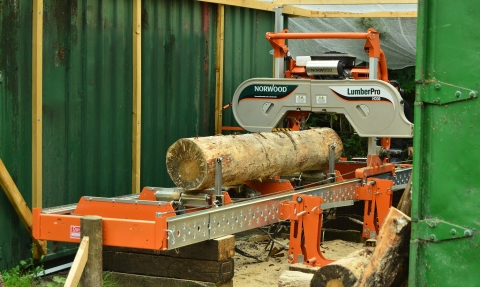
Forestry project
Sustainable woodland management
The current economic climate means there is markedly less grant funding available to support our activities and more competition for the funding that is available. We are therefore looking at our own resources to identify ways in which our charity can become more self-sufficient through the generation of new independent income streams. This project will contribute to the long term financial stability of Lancashire Wildlife Trust by creating a sustainable income stream from processing timber generated as a result of, and without compromising, our conservation activities.
As part of our conservation management activities we need to fell a number of trees every year, either to improve the ecology of a site or to ensure public safety. We leave some of this timber on the ground to provide a wildlife habitat and process some for firewood, which generates an income to support the upkeep of our nature reserves. However, some of the timber is high quality and, if properly processed and stored, could generate a significantly greater income when it is sold as seasoned planks or beams.
Grants from the EU LEADER programme the Lancashire Environmental Fund and the Friends of Mere Sands Wood enabled us to buy the equipment we need to process the timber. This includes a small forestry tractor that can manoeuvre through woodland, a portable sawmill, and a larger, fixed sawmill.
We will also use some of the timber within the Trust to make items such as benches and signposts. At Mere Sands Wood we used timber from our Scots pines to make the cladding for our new study centre. The pines were felled to make space for re-stocking with young conifers, to ensure there will be a long term conifer habitat for the reserve’s red squirrels.
Our forestry project will also promote best practice in sustainable woodland management by demonstrating how to generate an income whilst enhancing the woodland ecology. We intend to run workshops and site visits for other nature conservation charities and owners of private woodlands to help them better balance the needs of income generation and wildlife.
Part funded by the European Agricultural Fund for Rural Development

